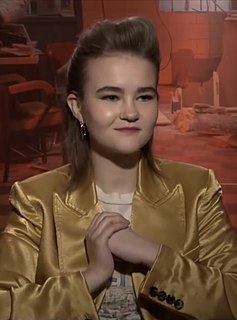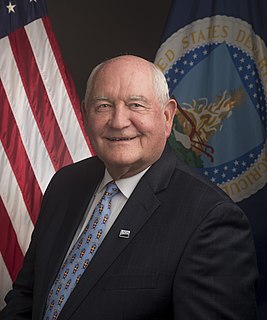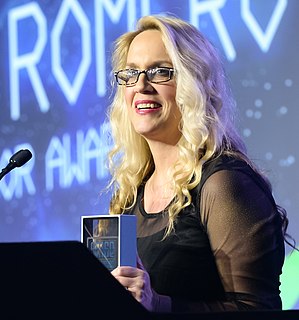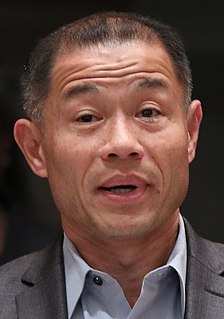A Quote by Greg Berlanti
I think in television there's more of an awareness about a need for more diversity, but there still needs to be great practical strides taken to improve diversity in front of and behind the camera.
Related Quotes
Katherine Johnson never complained, it just was what it was. She just said, "I just wanted to go to work and do my numbers." And she stopped right there. I think about that as a Black woman in Hollywood when I'm asked about diversity. I hate when people say diversity because the first thing you jump to is Black and white. When you talk about diversity, you're talking about women being hired in front of and behind the camera. You are talking about people with disabilities, the LGBTQ community...so I hate when people think about diversity.
The system of technological production that we have today has been justified in terms of creating more goods to feed more people and to meet more needs. But it actually destroys more of the resources that we need in order to meet those multiple needs. If we shift to an ecological perception, a diversity perception, we realize that some of the instruments of which we are very proud are actually extremely primitive for dealing with nature. To me that is the great lesson of ecological awareness at the turn of the millennium.
I think overall, from a deputy, from an undersecretary standpoint, the goal of a good leader is to get diversity across there. Geographical diversity is important. Industry diversity is important: you can't have all corn growers... Not only that, you've got gender diversity, you've got racial diversity.
We absolutely need diversity [in game designers]. And not just diversity of gender, but diversity of cultures, of ethnicity, of sexuality. If we want to reach beyond the audience we have we've got to bring in more players, and to bring in more players we've got to bring in people who might be able to reach those players.






































